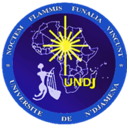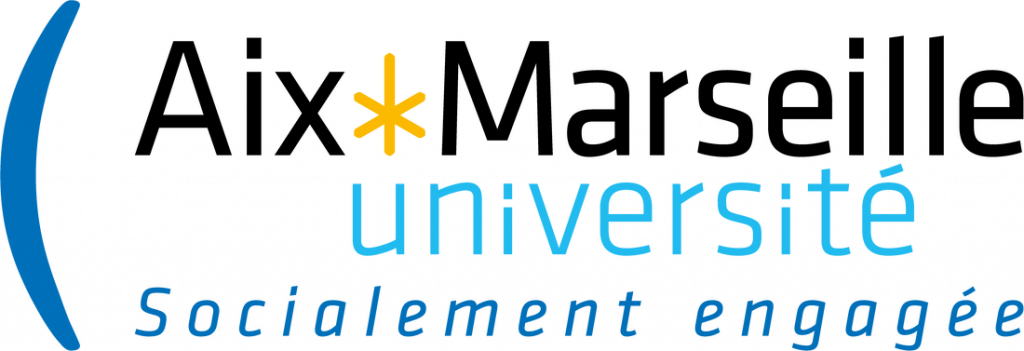CIMPA-CIRM Fellowships "Research in Residence"
Fluid flow and environmental modelling
Modélisation d’écoulements des fluides et environnement
2 – 6 September, 2024
Coordinators
Mahamat Saleh Daoussa Haggar (University of N’Djamena)
Florence Hubert (Aix-Marseille Université)
In connection with the impacts of climate change, the modeling and simulation of fluid flows, in particular rivers and lakes, represent a major major societal challenge in Africa. We aim at training local students in these in these areas, particularly in modeling and numerical simulations.
The school will to provide an introduction to fluid flow modelling and simulation of fluid flows. The courses will consist of six classes of 6 hours each. The week will be dedicated to introductory courses in python programming, conservation laws and hyperbolic systems in 1D and, finally, fluid modeling. Three more advanced courses of 6 hours each will be offered, with a course on compartmental models in ocean dynamics, a course on dispersive wave models and a a course on flows in porous media. We will also be offering students to work in groups on small research projects that will enable them to put into practice the notions they have learned in class and to explore certain topics. Eight topics will be proposed, four of which will focus on modelling issues, while the other four will focus more on numerical issues.
L’objectif de cette école est de proposer une initiation à la modélisation et la simulation des écoulements fluides. La formation sera composée de six cours de 6h chacun. La semaine sera dédiée à des cours d’initiation à la programmation python, aux lois de conservation et système hyperbolique en 1D et enfin à la modélisation fluide. Trois cours plus avancés de 6h également seront proposés avec un cours autour des modèles compartimentaux en dynamique océanique, un cours autour des modèles dispersifs pour les vagues et un cours en lien avec les écoulements en milieux poreux. Nous proposerons également aux étudiants de travailler en groupe autour de petits projets de recherche qui permettront de mettre en pratique les notions vues en cours et d’approfondir certaines thématiques. Huit sujets seront proposés, quatres d’entre eux seront accès sur des problématiques de modélisation alors que les quatre autres seront plus accés sur des problématiques numériques.
LECTURES
Introductory course I – Introduction to Python.
The aim of this course is to familiarize students with the Python language and, in particular, to show them examples of differential equations or partial differential equations modelling fluid flows (upwind scheme for transport equation for instance). We will use the numpy, scipy and matplotlib.pyplot libraries to simulate the solutions. This session is essentially a programming session.
This course will be given by Florence HUBERT
Introductory course II – Fluid flow modelling.
The aim of this course is to introduce the basic concepts associated with fluid flow modeling as the well-known Euler and Navier-Stokes systems. The main flow regimes (compressible, incompressible) will be presented as well as possible extensions for different geophysical fluids (realistic boundary conditions, rotation, non-Newtonian case, etc.). If we have enough time, we will try to outline the theoretical and numerical associated with these systems. This course will be include practical work with Python.
This course will be given by Charlotte PERRIN
Introductory course – Introduction to conservation laws and 1D hyperbolic systems
The aim of the course is to present the main results of existence and uniqueness for conservation laws and systems of conservation laws. To this end, we will introduce the notions of weak solutions, entropic solutions. These notions will be illustrated using the B¨urgers equation or models of traffic.
This course will be given by Patrick Mimphis TCHEPMO DJOMEGNI
Advanced course I – Compartmental models in ocean dynamics
The aim of this course is to propose reduced models for ocean circulation. In terms of modeling, this involves considering separate liquid boxes that are homogeneous in temperature and salinity (e.g. waters at the equator/ waters at high latitudes), where the exchange of matter between the two boxes depends on the differences in temperature and salinity between the two boxes. The resulting mathematical model is a system of non-linear ordinary differential equations. Theoretical and numerical attention will be paid to the system’s equilibrium points and the hysteresis phenomenon that arises. In short, this course and the associated practical work will enable us to apply the basic concepts of ODE theory to the case of thermohaline circulation in the ocean.
This course will be given by Charlotte PERRIN
Advanced course II – Free-surface hydraulic models
This course is an introduction to the modeling of free-surface flows on large time and space scales. We begin by modeling surface flows using the Saint-Venant shallow water model. This model is the cornerstone of geophysical models and is widely used for land-use planning (dams, bridges, dikes), flood forecasting and flood risk management. First, we’ll look at how to overcome certain shortcomings by proposing a multi-layer version that takes better account of boundary layers, for improved observation of friction processes or wind forcing. Next, we’ll look at how to take into account the dispersive effects required for wave and flood wave propagation, using Boussinesq-type modeling.
This course will be given by Martin PARISOT
Advanced course III – Coastal flows: sediment dynamics and porous media
The aim of this course is to introduce some mathematical models describing flow in saturated and unsaturated porous media. In particular, we will look at the derivation, mathematical and numerical analysis of Richards’ equation, as well as its implementation in a practical exercise. Applications are many and varied, and include hydrogeology (water resource management), the environment (transport of pollutants in soils), civil engineering (waterproofing of concrete), etc. This course will include practical work using Python.
This course will be given by Mehmet ERSOY
SPONSORS




